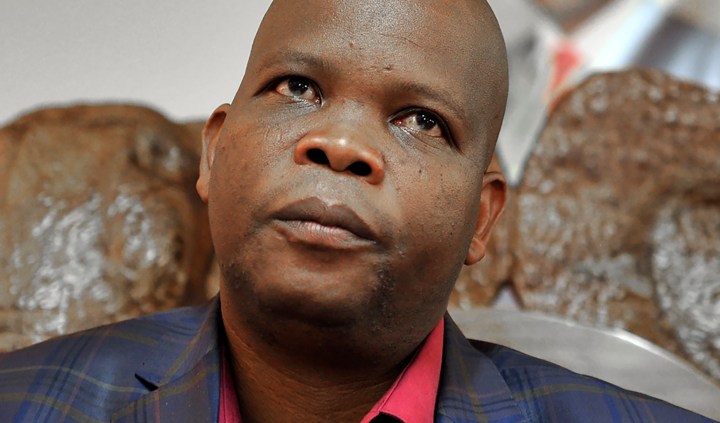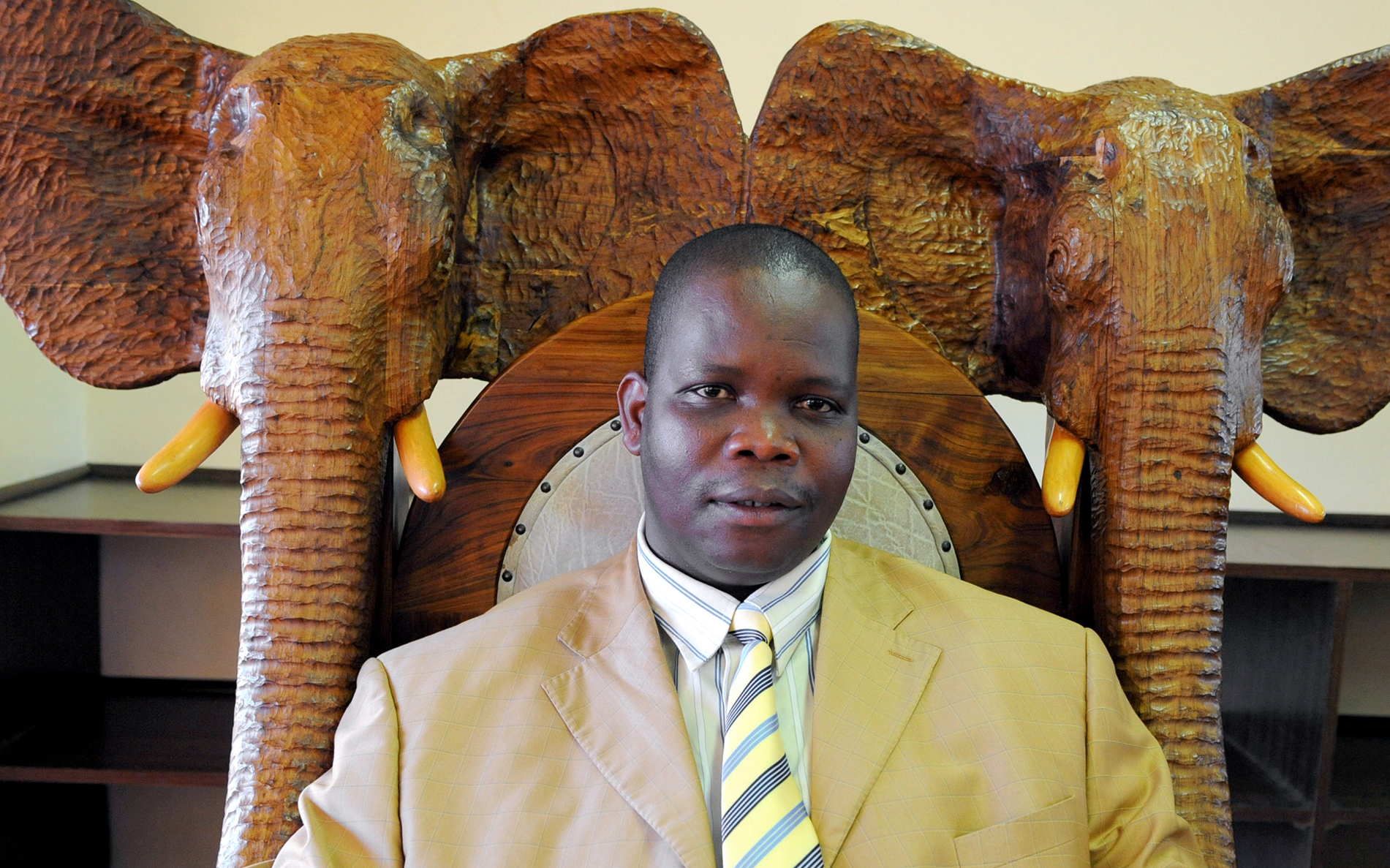On Tuesday this week Judge Makume in the high court of Johannesburg ordered Toni Mphephu Ramabulana to repay the money for three luxury cars he received from VBS Mutual Bank.
The judgment states Mphephu’s “evidence and version crawls with contradictions and inconsistence and has completely distorted the reality”, the legal arguments are “flimsy” and his version of events at one point “is so far-fetched and legally untenable” that it “requires no further consideration”.
Mphephu was ordered to pay back to VBS three amounts totalling R5.6-million calculated at 10.25%, 11.58% and 12.50% interest for a Range Rover 5.0 V8, a BMW 760i Sedan and a Mercedes-Benz V250d.
Mphephu pleaded poverty and if he told the truth, it’ll be hard going to recoup the money.
What is this about?
In a region where ‘position’ equals power equals (taxpayer) money equals societal position, Toni Mphephu Ramabulana was perfectly poised to illegally benefit from the cash streaming out of VBS Mutual Bank.
He was the Venda King, a powerful position in the northern part of South Africa — not only over its citizens but in local municipalities and parts of government structures.
In 2015, for example, Mphephu received a tax-free salary from government of R1.1-million per year because he was the ‘king’.
 Then Va-Venda King Khosikhulu Toni Mphephu Ramabulana during an interview about the then ongoing protests in Vuwani on May 06, 2016 in Limpopo, South Africa. (Photo: Gallo Images / City Press / Lucky Nxumalo)
Then Va-Venda King Khosikhulu Toni Mphephu Ramabulana during an interview about the then ongoing protests in Vuwani on May 06, 2016 in Limpopo, South Africa. (Photo: Gallo Images / City Press / Lucky Nxumalo)
Tshifhiwa Matodzi, chartered accountant and disgraced VBS CEO who stands accused of stealing the bank into insolvency, saw the gap. Matodzi’s game plan was to recruit people in positions of power to redirect state and private money to VBS — be that King Mphephu, government officials strategically placed to assist his scam or politicians who could provide cover. In a simple exercise of ‘money makes money’, Matodzi piled on these agents monetary and physical “gifts” worth millions of rands — all disguised as “loans” which were never meant to be paid back. In return, Mphephu supported VBS openly, supporting the perception that the bank was a safe bet while allegedly leaning on municipal officials to inject more money into the bank.
But when you steal more than you put back in — as Matodzi and the management team at VBS did — the bottom will fall out eventually. It took them less than three years from the date Matodzi was appointed as chairman of the board of directors of VBS to steal the bank into insolvency. By March 2018 the game was up.
The Reserve Bank instituted a far-reaching and sensational investigation by advocate Terry Motau and law firm Werksmans and appointed Anoosh Rooplal of SNG Grant Thornton as liquidator.
Visit Daily Maverick's home page for more news, analysis and investigations
The very efficient Rooplal started his own investigation and, bolstered by the findings of Motau and Werksmans, started clawing back the VBS money in an attempt at repaying some of it to the bank’s creditors. One of the benefactors from VBS loot Rooplal set his sights on, was Toni Mphephu.
What are the arguments?
Motau and Werksmans found that Mphephu received at least R18-million in gratuitous payments from VBS Mutual Bank.
In one attempt at recouping the looted money, Rooplal went after Mphephu’s cars. Mphephu claimed these were “gifted” to him and claimed to be surprised that a debt needed to be repaid — a description that fits perfectly into the picture sketched by known facts of how Matodzi handed out high-value ‘gifts’ to people in power. To ostensibly regularise the gift, Matodzis' team tended to draft ‘vehicle finance’ documents, signed without much thought by the happy receivers. These “loans” were however never paid back, the bank’s financial statements show.
When Rooplal took over, all of that changed. Earlier this year Rooplal approached the court to enforce the payment clauses of the contracts signed by Mphephu.
In wild attempts at rebuttal, Mphephu argued that the debt has become prescribed because of the time delays in trying to recover the money, asked to be placed under debt review, claimed the loans made to him were reckless lending as the bank never established whether he could pay the debt and that VBS was not a registered credit provider.
Rooplal’s replying affidavit discounted every argument by Mphephu.
VBS had been a registered credit provider since March 2007.
Rooplal explains that the bank’s financials were in complete disarray and that much of it was destroyed when he took over — the reconstruction and investigation were time-consuming.
Mphephu further received large amounts of money from government in lieu of him being the Venda king and regular large payments from a variety of sources indicated that he had a number of benefactors. It was clear that he could afford the cars, Rooplal argued.
The high court in Johannesburg agreed and ordered Mphephu to pay back the money for the cars as well as the costs of the court application on the scale between attorney and client.
How will Mphephu pay back the money?
This is unclear.
Almost exactly a year ago the Constitutional Court dismissed Mphephu’s application for leave to appeal a judgment which set aside the decision to appoint him as the king of the Vhavenda Traditional Council.
This after the princess of the VhaVenda royal family Masindi Clementine Mphephu asked the high court in Thohoyandou in 2012 to review and set aside the decision to identify and recognise Mphephu Ramabulana as the VhaVenda king. She further asked for an order declaring that she is the sole queen of Vhavenda, in terms of customary law. The dispute is yet to be finalised.
In line with the Constitutional Court’s decision, the Department of Cooperative Government, Human Settlements and Traditional Affairs said Mphephu would be stripped of his salary and benefits. DM




 Then Va-Venda King Khosikhulu Toni Mphephu Ramabulana during an interview about the ongoing protests in Vuwani on May 06, 2016 in Limpopo, South Africa. (Photo: Gallo Images / City Press / Lucky Nxumalo)
Then Va-Venda King Khosikhulu Toni Mphephu Ramabulana during an interview about the ongoing protests in Vuwani on May 06, 2016 in Limpopo, South Africa. (Photo: Gallo Images / City Press / Lucky Nxumalo) 